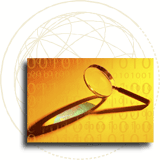General guidance on officially accepting WTO legal instruments
Members that intend to be bound by a specific WTO agreement or related legal instrument have to express their consent by depositing a valid “instrument of acceptance” with the Director-General directly, or through the Depositary Assistant. Most WTO instruments, in addition to relevant provisions of the WTO agreements, specify additional steps that a member must take to demonstrate consent. Members may express this consent in various ways, and may have a separate domestic approval process.
Which WTO instruments are currently open for acceptance?
There are a number of multilateral and plurilateral instruments that are currently open for formal acceptance by members.
The multilateral instruments include the 2022 Protocol concerning the Agreement on Fisheries Subsidies, the 2014 Protocol concerning the Trade Facilitation Agreement, and the 2005 Protocol Amending the TRIPS Agreement. The following links contain detailed information on how to formally accept each of these protocols:
- 2022 Protocol concerning the Agreement on Fisheries Subsidies;
- 2005 Protocol Amending the TRIPS Agreement; and
- 2014 Protocol concerning the Trade Facilitation Agreement.
The plurilateral instruments open to members' acceptance include the 2001 and 2015 Protocols Amending the Annex to the Agreement on Trade in Civil Aircraft.
In addition, a valid instrument of accession should be deposited by an acceding member accepting the relevant WTO accession protocol or by a member acceding to a plurilateral agreement.
What is a valid instrument of acceptance/accession?
There is no single, uniform approach for drawing up an instrument of acceptance/accession for a particular protocol; each member may have its own practice for accepting international agreements and amendments. However, there are some elements that must be included in such an instrument in order for it to be legally valid. In line with established depositary practice, the instrument of acceptance/accession must give clear and unambiguous expression to the relevant member’s intention and consent to be bound by the agreement in question.
In particular, the instrument of acceptance/accession must:
- clearly identify the specific protocol by its full title and by the place and date of its adoption, e.g. “the Protocol Amending the Marrakesh Agreement Establishing the World Trade Organization done at Geneva on 27 November 2014” or, alternatively, reproduce the specific protocol as an attachment to the instrument of acceptance/accession;
- state that the member concerned formally accepts the specific protocol and expresses its consent to be bound by it;
- state the date and the place of issuance of the instrument of acceptance/accession;
- be signed; and
- state the name and title of the person signing the instrument.
The official languages of the WTO are English, French and Spanish. In the event that the instrument of acceptance/accession is drafted in another language, an unofficial courtesy translation to one of the three official languages must accompany the instrument.
Who signs a member's instrument of acceptance/accession?
Established practice is for the instrument of acceptance/accession to be issued and signed by one of the following: the Head of State, the Head of Government, or the Minister for Foreign Affairs (the “Big Three”). 1 The instrument may be signed by another official provided that he or she produces official documentation (known in international law as “full powers”) to the effect that one of the “Big Three” has authorized him or her to issue and sign the instrument.
Unsigned instruments in the form of notes verbales, even bearing the seal of the ministry or of the presidency, are not sufficient for accepting a protocol.
How is the instrument of acceptance/accession deposited with the WTO?
The original, signed instrument of acceptance/accession should be deposited with the Depositary Assistant in the WTO Legal Affairs Division. The date of deposit corresponds to the date when the valid original instrument fulfilling the above requirements is received by the Depositary Assistant. The instrument may be deposited in-person or mailed to the WTO. Instruments of acceptance/accession may not be deposited electronically. Only original instruments are valid, and copies in electronic or paper form are not accepted.
Interested delegations are invited to contact the Depositary Assistant, in the WTO Legal Affairs Division with any requests for further assistance in drawing up a valid instrument of acceptance/accession.
Notes:
1. Alternatively, where applicable, a member’s competent authority, typically the highest ranking official responsible for external trade matters, may issue and sign the instrument. This is particularly the case for WTO members that might not have officials with titles directly corresponding to the “Big Three” in a way that is acceptable for the entire WTO membership. back to text
